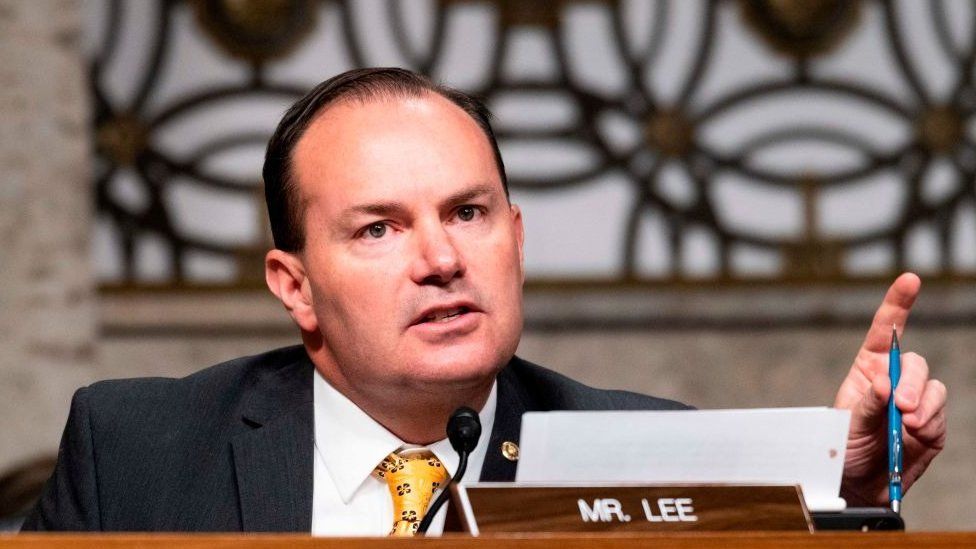Blog Post
Republican Senator Mike Lee goes to war against the porn industry
By Jonathon Van Maren
Digital pornography is one of the great scourges of our time, with a majority of young people — including minors — getting addicted to depraved sexual material before they are old enough to vote, drink, or drive. The average age of first exposure to pornography has dropped precipitously over the past decade, with most children first encountering it around age 11. Much of what they see is now brutal and violent. The videos and images are no longer simply sexual — they usually depict degradation and abuse of a sort not imaginable to their grandparents and inaccessible to previous generations.
It is long past time that politicians took meaningful action to protect children (and adults) from this pernicious, predatory, and powerful industry. J.D. Vance, who has since been elected a U.S. senator in Ohio, told me in an interview in 2021 that contrary to popular belief, there are things that can be done. “Some of these fixes aren’t going to be easy, but it requires the political willpower for us to say enough is enough,” he noted. “This is not magic. The idea that you can’t regulate the internet in a way that protects children is just absurd.”
Senator Mike Lee of Utah has launched an effort, putting forward a bill in December that could redefine obscenity under the Communications Act of 1934 to include pornographic content. In a summary released on December 13, Lee noted that obscenity — which is not protected speech under the First Amendment — is notoriously hard to define, and that as such a clarification should be made to combat pornography. Specifically, Lee’s bill proposes that:
-
Defines “obscenity” within the Communications Act of 1934 as content that:
-
(i) taken as a whole, appeals to the prurient interest in nudity, sex, or excretion,
-
(ii) depicts, describes or represents actual or simulated sexual acts with the objective intent to
-
arouse, titillate, or gratify the sexual desires of a person, and,
-
-
(iii) taken as a whole, lacks serious literary, artistic, political, or scientific value.
-
-
Strengthens the existing general prohibition on obscenity in the Communications Act (47 U.S.C 223(a)) by removing the “intent” requirement that only prohibits the transmission of obscenity for the purposes abusing, threatening, or harassing a person.
The porn industry, predictably, is expressing concern that Lee’s bill could criminalize online pornography in the United States — Mike Stabile of the Free Speech Coalition, which functions as a PR and lobby arm of the smut trade, stated that people should be concerned and that the bill was “tremendously scary” for those in the porn trade (although not, if the testimonies of former porn stars are any indication, as tremendously scary as what they endure in the industry itself). If passed (which Stabile stated was unlikely), the bill could “basically criminalize 99%” of online porn.
READ THE REST OF THIS COLUMN HERE








